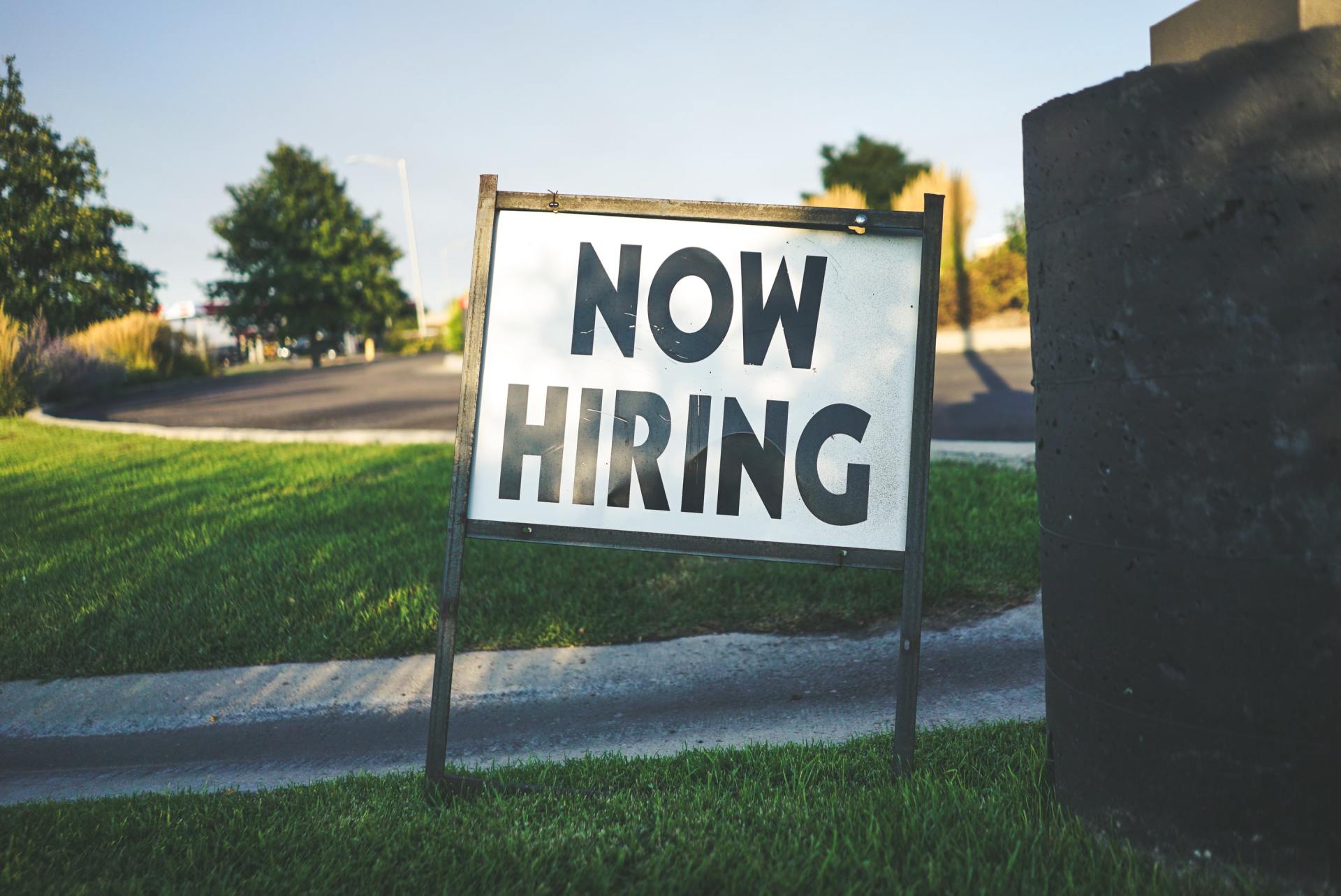


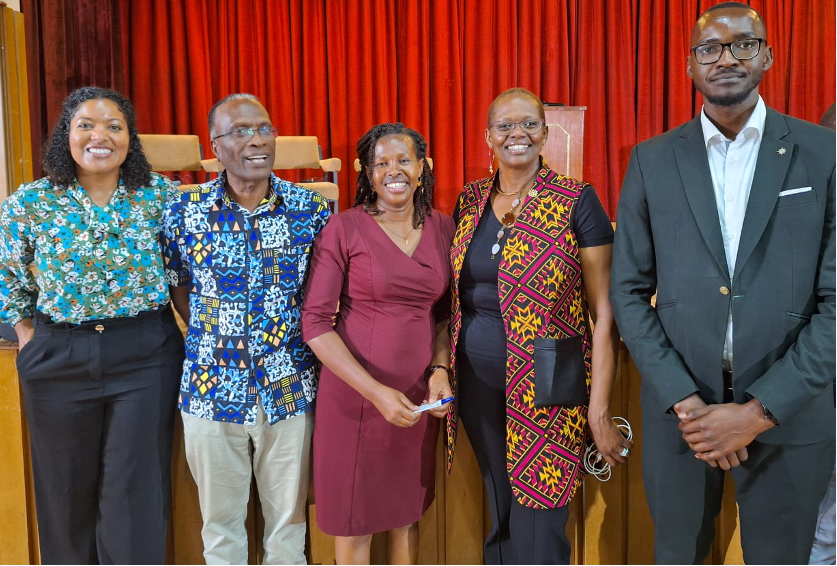
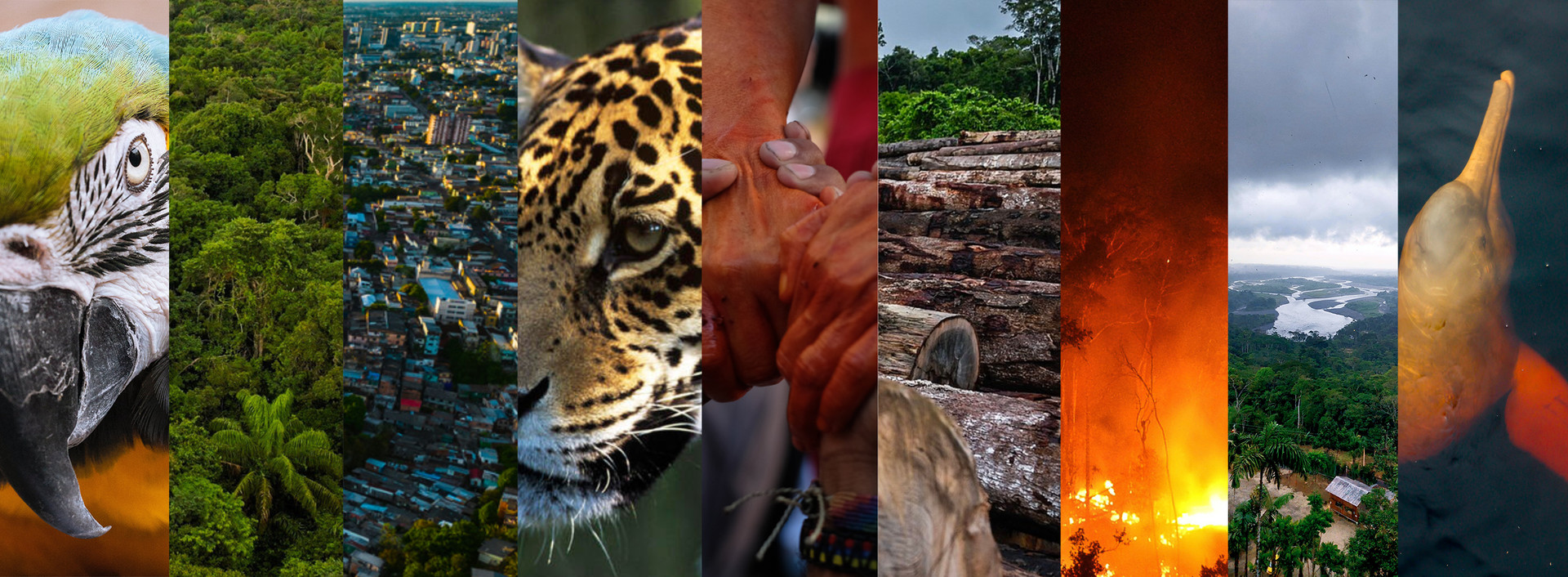
In 2015, the United Nations adopted the 2030 Agenda for Sustainable Development – “a plan for people, planet and prosperity”, which includes 17 Sustainable Development Goals (SDGs) that service as a roadmap for the national and international policies that should be implemented to achieve a better and more sustainable future for all. Society, Economy and Environment are the three pillars for sustainable development, therefore, environmental protection is expressed directly through Goals 13 (Climate action), 14 (Life Below Water), 15 (Life on Land) and indirectly through Goals 7 (Affordable and Clean Energy) and 11 (Sustainable Cities and Communities). Achieving the SDGs in an interdependent and interconnected world cannot be done only by domestic actions, but also by efforts at the international level. Thus, the Sustainable Development Solutions Networks (SDSN) were established. SDSNs comprise research and educational institutes that promote practical and integrated approaches towards the implementation of the SDGs, such as decarbonization strategies, ways of sustainable land-use and food systems and tracking of bilateral spillover effects globally. SDSNs consists of national, regional and thematic Networks. A newly established regional network is SDSN Black Sea, hosted by the Aristotle University of Thessaloniki, which seeks to promote actions for sustainability in the wider area of the Black Sea.

In September 2000, during the Millennium Summit which took place at the UN Headquarters in New York, world leaders adopted the United Nations Millennium Declaration, committing to fight poverty, hunger, disease, illiteracy, environmental degradation and discrimination against women. The Declaration set out a series of time-bound targets with a deadline of 2015, known as the Millennium Development Goals (MDGs).
The eight Millennium Development Goals are:

The MDGs marked a historic
and effective method
of global mobilization to achieve a set of important
priorities worldwide (Sachs, 2012). According to the Millennium Development
Goals Report (2015), extreme poverty has declined significantly, as in 1990, the extreme poverty rate in developing countries was 47%, whereas in 2015 the same
rate was 14%. Furthermore, the number of people working middle class has almost
tripled between 1991 and 2015. As far as Goal 2 (achieve universal primary
education) is concerned, primary school enrollment has reached 91% in 2015, up
from 83% in 2000. In Sub-Saharan Africa,
there has been observed a 20%-point increase
in the net enrollment rate from
2000 to 2015, while in general, more girls enrolled in primary schools and more
women participated in parliaments worldwide since 1995. Regarding Goal 3
(Reduce child mortality), the global under-five mortality rate has declined by more than half, dropping
from 90 to 43 deaths
per 1000 live births
between 1990 and 2015 and about 84% of children worldwide received at least a
dose of measles-containing vaccine in 2013 (up from 73% in 2000). Moreover, the maternal mortality ratio [1] has declined by 45 per cent worldwide, while more than 71% of births
were assisted by skilled health personnel globally in 2014, an increase from
59% in 1990.
Actions taken by nations to achieve MDG 6 led to a reduction in new HIV infections and an increase of people receiving antiretroviral therapy globally, while tuberculosis prevention, diagnosis and treatment programs saved an estimated 37 million lives between 2000 and 2013. As far as MDG 7 (Ensure environmental sustainability), the ozone layer is expected to recover by the middle of the 21st century, while terrestrial and marine protected areas have increased substantially since 1990. Furthermore, there has been an increase in the amount of people who have access to an improved drinking water source and a decrease in the proportion of urban population living in slums in the developing regions. Finally, the official development assistance (ODA) from developed countries increased by 66% in real terms between 2000 and 2014, while more people worldwide have access to and utilize technology, mainly expressed by mobile-cellular subscriptions and internet penetration.
The MDGs aimed mainly at human rights and equality and they have played an important role in fighting poverty, hunger and disease. But the actions taken against climate change and environmental protection were not enough (Castelló et al, 2010) Furthermore, they were “targets mainly for poor countries, to which rich countries were to add their solidarity and assistance through finances and technology” (Sachs, 2012). Acknowledging the fact that in an ever-changing world, environmental objectives need a higher profile alongside poverty-reduction objectives, the need for new revised goals emerged. Goals which would target actions regarding the three main pillars of sustainability: economy, society and environment and would involve the participation of all countries regardless their financial status and policies.
In June 2012, during the “Rio+20” Conference on Sustainable Development, world leaders recognized the need for the development of a new set of goals, aiming at sustainable development. Thus a group of Member States formed an Open Working Group to prepare a proposal on the Sustainable Development Goals (SDGs). The group’s proposal was welcomed by the 69th UN General Assembly in 2014 and became the principal guideline for integrating the SDGs into the post-2015 development agenda. During the 70th UN General Assembly in 2015, participating states adopted the 2030 Agenda for Sustainable Development, a “plan of action for people, planet and prosperity”, which “seeks to strengthen universal peace in a larger freedom” (UN General Assembly, 2015). The 2030 Agenda is expressed through 17 Goals and 169 targets, which integrate economy, society and environment around people and global prosperity. Through the SDGs it is recognized that creating inclusive economic growth, preserving and protecting the planet and eradicating poverty and inequality are interlinked, affect population health and that their relationship is dynamic and reciprocal (World Health Organization, 2015). The 17 Sustainable Development Goals (SDGs) are:
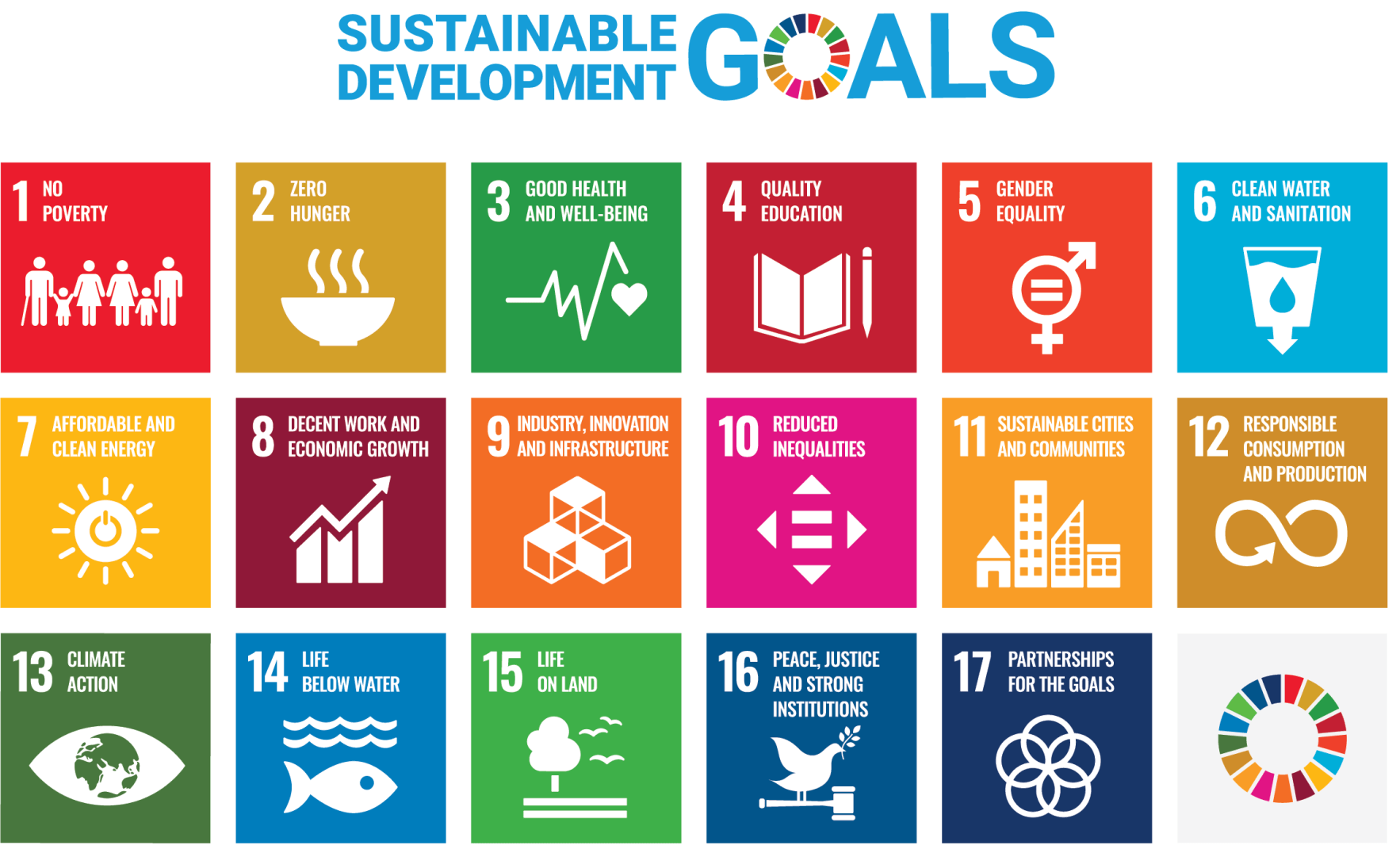
Acknowledging the urgency for action regarding sustainable policies worldwide, after Rio+20, the then UN Secretary-General Ban Ki-moon tasked the well-known and respected economist Jeffrey D. Sachs to create a global network of sustainable development problem solving. Thus, the UN Sustainable Development Solutions Network (SDSN) was set up in 2012. The idea behind its creation is the fact that the world needs an era of intensive problem solving in sustainable development challenges and not only new goals, political motivation and will (Sachs, 2015). Since then, SDSN has established 35 National and Regional Networks all around the globe, that work on SDG implementation in their country or region.
The SDSN pursues to connect the world’s academic, research and knowledge-generating institutions in order to help them realize the Sustainable Development Goals (SDGs) and the Paris Agreement. Currently, over 1200 member institutions in more than 100 countries work on research regarding the implementation of the SDGs in a national and/or regional level through practical and feasible solutions. Furthermore, they promote high-quality education and research collaboration for sustainable development and support governments in understanding and addressing the challenges of sustainable development.
Alongside its National and Regional Networks, SDSN’s work is supported by and based upon its Thematic Networks and Working Groups:
Sustainable Cities:
Inclusive, Resilient and Connected
This Thematic Network’s aim is the identification of practical solutions for improving urban management.
Climate and Energy
SDSN has undertaken a lot of research regarding Climate and Energy. Its projects include:
Good Governance of Extractive and Land Resources
The group’s main work is the better usage of resource endowments, including land for sustainable development. One of its more recent publications is “Mapping the Renewable Energy Sector to the Sustainable Development Goals: An Atlas”, which intends to serve as a “guide for renewable energy developers, operators and investors, as well as their government partners, to maximize the renewable energy sector’s contribution to the SDGs”.
Health for All
This Thematic Network conducts research regarding the implementation of SDG 3 worldwide, in order to address health challenges. Its work includes the “Global Nutrition Report 2018”, where five steps are needed to meet the 2030 target of ending malnutrition in all its forms (Fanzo J. et al, 2018)
Food, Agriculture, Biodiversity, Land and Energy (FABLE)
The FABLE Consortium aims at understanding the ways that countries can transition towards sustainable land-use and food systems. FABLE consists of 22 country teams, which work on developing data and modeling infrastructure to promote integrated strategies towards sustainable land-use and food systems. Consortium’s work includes but is not limited to the Nature Map Explorer, an interactive map, which provides a set of integrated global maps on biodiversity and ecosystems services based on the best available scientific data and Growing Better Report (Ten Critical Transitions to Transform Food and Land Use), which proposes a reform agenda of real actionable solutions to boost progress towards the SDGs and safeguard biodiversity.
Sustainable Agriculture and
Food Systems
Its aim is to connect experts and practitioners to turn knowledge in to practice for achieving SDG 2: Zero Hunger.
SDG Financing Initiative
This working group convenes sector experts to aggregate their respective costing models and data for SDG targets, especially for low-income countries. Its work includes, but is not limited to the Report “SDG Costing & Financing for Low-Income Developing Countries”, which proposes new international financing mechanisms to fill the SDG financing gap through various measures and to the Report “Closing the SDG Budget Gap (by Move Humanity)”, which examines the fiscal burdens facing the Low-Income Developing Countries (LIDCs) and the ways to close the resulting budget gap.
Thematic Research Network on Data and Statistics (TReNDS)
TReNDS convenes experts to catalyze learning and investment in the data revolution for development. TReNDS’s work strengthens the data ecosystem, improves learning on data sharing and informs investment in emerging data opportunities. Its flagship series “Counting on the World” explores the ways to harness data revolution for sustainable development, while its projects “Data for Now”, “POPGRID” and “Contracts for Data Collaboration (C4DC)” seek to improve the overall quality of SDG data and to strengthen the accountability of cross-sector data collaboratives.
The World in 2050 (TWI2050)
TWI2050 was launched by the International Institute for Applied Systems Analysis (IIASA), the SDSN and the Stockholm Resilience Centre (SRC) and seeks to provide fact-based knowledge to support the policy process and implementation of the SDGs. Its report “Transformations to achieve the Sustainable Development Goals” explores the current trends that encourage and threaten the achievement of the SDGs.
The SDG Academy
SDSN main belief is that research and education play an important role in SDGs implementation. Thus, the SDG Academy was created. In this MOOC platform experts from all around the globe create and deliver educational content on critical issues (health, education, climate change, agriculture and food systems, sustainable investments). The offered courses are accessible online and free for all. Furthermore, SDG Academy hosts its own Library, a searchable catalog of all course videos.
SDG
Index and Monitoring
Since 2015, SDSN partners with Bertelsmann Stiftung to assess progress made towards SDG achievement at national and local level. The report uses official SDG indicators endorsed by the UN Statistical Commission and where insufficient data is available for an official indicator, other metrics from official and unofficial providers are included in order to provide “the most up-to-date metrics to gauge the performance of countries on the SDGs” (Sachs et al, 2019). The latest edition covers 162 countries (compared with 156 in 2018) and was audited by the European Commission Joint Research Centre (JRC). Moreover, SDSN publishes continental and subnational reports monitoring the implementation of SDGs locally. Such reports refer to Europe, the Arab Region, Africa, European Cities and US Cities.
SDSN
Youth
In 2015 SDSN launched its official youth initiative, SDSN Youth. Its purpose is to involve young people globally in the implementation of the SDGs through empowering them to create sustainable development solutions.
Since 2018, the Aristotle University of Thessaloniki hosts one of the newly established regional networks, the SDSN Black Sea. Its vision is to unite people of the wider Black Sea region under the goal of sustainable development. Typically, the Black Sea Region has been characterized by its cultural diversity and countries which have historically been in direct or indirect conflict. The network aims to unite the people to join forces to improve their lives while ensuring a peaceful, prosperous and sustainable future for all.
The participating institutions are currently based in twelve countries: Albania, Armenia, Azerbaijan, Bulgaria, Georgia, Greece, Moldova, Romania, Russia, Serbia, Turkey and Ukraine.
Since its establishment, SDSN Black Sea has hosted and supported various events globally to raise awareness regarding sustainable development and the SDGs, such as:
SDSN Black Seas
main activities include:
Furthermore, SDSN Black Sea is currently organizing its SDSN Youth Black Sea branch and seeks for new opportunities to communicate the importance of Sustainability and Sustainable Development, while actively seeking practical ways to implement the SDGs in its region.
Any non-profit knowledge-generating institution is free to join the SDSN. Membership is open to universities, research centers, civil society organizations and any other knowledge center which can offer expertise on sustainable development. Candidate members should commit to find and/or implement solutions for the SDGs. More information, including the application process, can be found at the official UN SDSN Site ( https://www.unsdsn.org/join-the-sdsn ).
SDSN is a vast network of esteemed knowledge centers
focused on providing feasible and practical solutions for achieving the
Sustainable Development Goals (SDGs) in a local or a regional level. By joining
the SDSN, any member can participate in national or regional initiatives
launched by SDSN members and develop its own ideas into actions. By becoming an
SDSN member, one can pursue joint fundraising through SDSN brand recognition
and additional networking opportunities.
Secondly, all SDSN members are invited to use the SDG Academy and actively participate in its shaping, by developing Massive Open Online Courses (MOOCs) regarding sustainability, SDGs and their implementation. Furthermore, members are invited to use any online resources developed by the SDSN and its members, helping them in their research or educational activities.
Finally, members can actively contribute in the SDSN’s Thematic Networks and participate in the annual International Conference on Sustainable Development, which is held in New York around the UN General Assembly and showcases leading academic and programmatic work on sustainable development.
The Sustainable Development Goals (SDGs) were created to replace the Millennium Development Goals (MDGs) in order to meet the needs for sustainable development. While the latter focused mainly on the fight against poverty, the SDGs focus on a set of various aspects which portray sustainability and refer to its three pillars: Society, Environment, Economy. Such Goals are “Zero Hunger” (SDG 2), “Quality Education” (SDG 4), Responsible Consumption and Production (SDG 12) and “Climate Action” (SDG 13). To ignite and promote research about their implementation the Sustainable Development Solutions Network (SDSN) was set in 2012.
Since then, SDSN operates with 35 National and Regional Networks across the globe, which join forces to research feasible sustainable solutions on a national or international level.
One of its newly added regional networks is SDSN Black Sea, hosted by the Aristotle University of Thessaloniki, which operates in twelve countries. Its main activities include the identification and support of finished or on-going research projects whose content is related to sustainable development and the organization of events, whose purpose is to inform communities regarding the SDGs and the role of the SDSN.
Any research institution is free to join the vast network of SDSN in order to collaborate with esteemed universities and research centers globally in order to identify ways to implement solutions regarding the SDGs.
[1]Maternal Mortality Ratio (MMR) is defined as the number of maternal deaths during a given time period per 100,000 live births during the same time period (Global Health Observatory, 2020)
This paper was accepted for oral presentation to the International Conference “ Protection and Restoration XV ” and inclusion in the e-Proceedings of the Conference, organized by the Stevens Institute of Technology, USA, and the Department of Civil Engineering of the University of Patras, Greece.
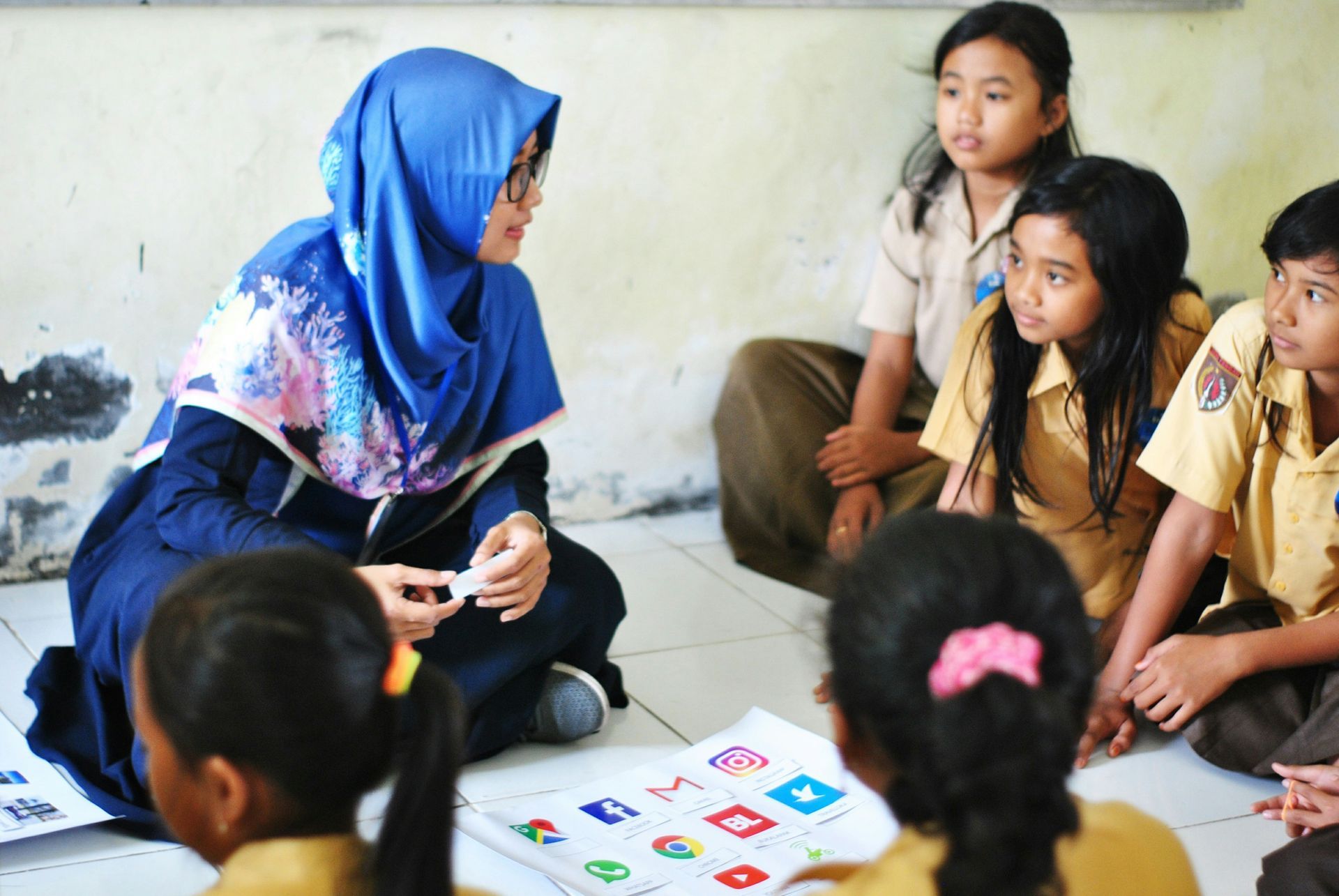





Get our latest insights, opportunities to engage with our networks, and more.
SDSN mobilizes global scientific and technological expertise to promote practical solutions for sustainable development, including the implementation of the Sustainable Development Goals (SDGs) and the Paris Climate Agreement.
Paris
19 rue Bergère
75009 Paris
France
+33 (0) 1 84 86 06 60
New York
475 Riverside Drive
Suite 530
New York NY 10115 USA
+1 (212) 870-3920
Kuala Lumpur
Sunway University
Sunway City Kuala Lumpur
5 Jalan Universiti
Selangor 47500
Malaysia
+60 (3) 7491-8622